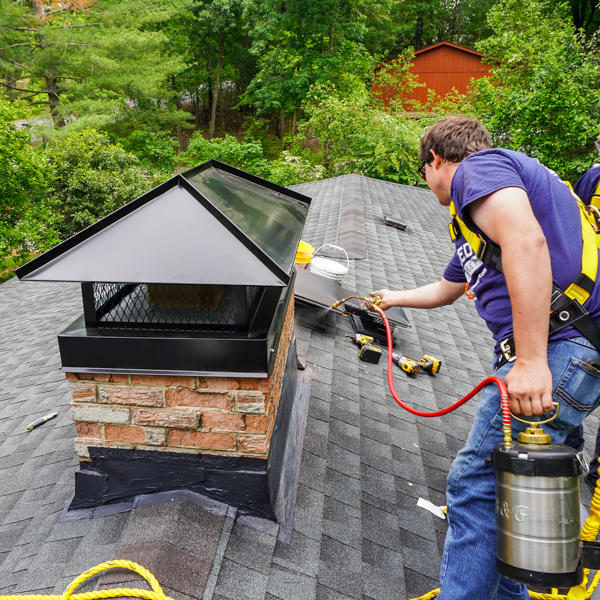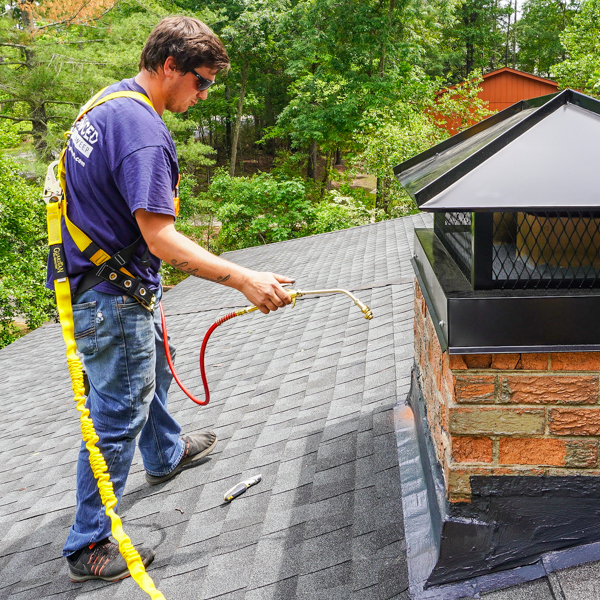Is Chimney Waterproofing Necessary?
If you have a fireplace, then a chimney is an essential component of its function and structure. Of course, all parts of a home need care and upkeep. This helps to ensure a safe and viable family living space. Likewise, your chimney is one of these areas. However, one often overlooked maintenance task is protecting a chimney’s masonry against water. This raises an interesting question: is waterproofing necessary? To put it simply, yes. Here are a few reasons why this is the case.
 Fire safety
Fire safety
As a homeowner, you want your home to be a safe haven for those who live there and visit. Nothing is more devastating to a family than to experience a house fire. And as it turns out, one of the biggest benefits of waterproofing a chimney is lowering that specific risk.
How is waterproofing necessary in fire prevention exactly? Your chimney, which is made of brick and mortar, helps to insulate the flammable portions of your home against excessive temperatures. However, masonry is porous. When water runs down the side of your chimney, it will both weaken and damage it. The more this happens, the less effective the brick will be at doing its job properly. By waterproofing your chimney, you keep it in tip-top shape and help allow it to do its job as engineers intended.
Water damage
Let’s talk some more about water. When an Advanced Chimney Sweep technician visits your home, they’ll often look for signs of water damage. They include:
- Stains on the outside of your chimney, indicative of mold growth and/or efflorescence;
- Crumbling or spalling bricks;
- Missing or damaged flashing;
- A broken or missing chimney cap;
- And a damaged crown.
So, is waterproofing necessary? If you want to prevent any of these water-based damages, then yes. Waterproofing can help keep your flashing, crown, and cap in working condition. It can also help ward off crumbling and spalling brick while preventing mold growth.
Types of waterproofing
One last consideration for the homeowner is which of the two primary types of waterproofing they’ll go with. In many cases, we’ll recommend both of them. Here’s why:
- An internal membrane: This type of waterproofing helps to seal your chimney. Therefore, it keeps mold and mildew growth at bay while protecting the internal components of the structure such as the flue liner.
- An external coating: This is what most think of when they envision waterproofing. This is a thin layer of waterproof repellant, is easier to apply, and helps to protect the exterior portions of your masonry.
 Is waterproofing necessary? Absolutely!
Is waterproofing necessary? Absolutely!
Waterproofing is the first line of defense against the elements. It helps to protect your chimney and all of its components, ranging from your masonry to your cap and crown. It not only prolongs the life of your fireplace system but saves you money in the long run.
Would you like to schedule an appointment for an inspection or waterproofing with our team? If so, we’re just a phone call away. Call Advanced Chimney Sweep at (706) 833-4630 (GA) or (SC) (803) 508-3990; you can also send us a quick message via our contact form.





